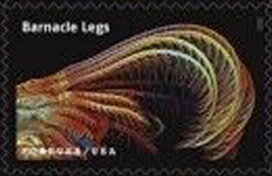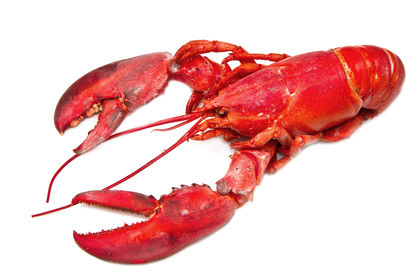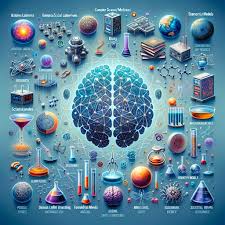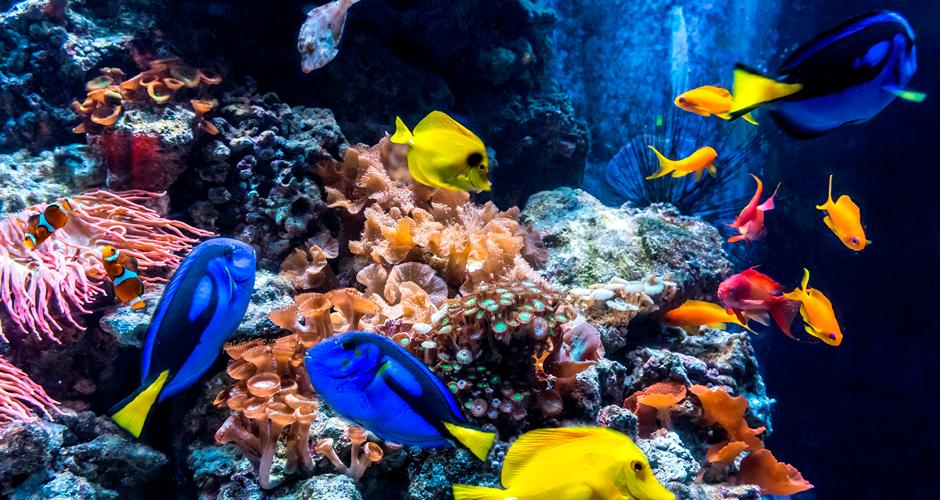Stamp: Barnacle Legs (United States of America 2023)
Barnacle Legs (United States of America 2023)
10 August (United States of America ) within release Life Magnified (2023) goes into circulation Stamp Barnacle Legs face value FOREVER No Face Value
| Stamp Barnacle Legs in catalogues | |
|---|---|
| Colnect codes: | Col: US 2023.08.10-01r |
Stamp is horizontal format.
Stamp from mini-sheet. Face value US$0.66 on day of issueAlso in the issue Life Magnified (2023):
- Stamp - Acorn Barnacle face value FOREVER;
- Stamp - Arranged Diatoms face value FOREVER;
- Stamp - Barnacle Legs face value FOREVER;
- Stamp - Blue Button Organism face value FOREVER;
- Stamp - Diving Beetle Front Foot face value FOREVER;
- Stamp - Flame Lily Pollen face value FOREVER;
- Stamp - Freshwater Protozoans face value FOREVER;
- Stamp - Freshwater Snail Tongue face value FOREVER;
- Stamp - Human Hair face value FOREVER;
- Mini Sheet - Life Magnified face value 20*FOREVER;
- Stamp - Macaw Parrot Feathers face value FOREVER;
- Stamp - Mold Spores face value FOREVER;
- Stamp - Moss Leaves face value FOREVER;
- Stamp - Moth Antenna face value FOREVER;
- Stamp - Moth Wing Scales face value FOREVER;
- Stamp - Mouse Brain Neurons face value FOREVER;
- Stamp - Mushroom Gills face value FOREVER;
- Stamp - Oak Leaf Surface face value FOREVER;
- Stamp - Red Blood Cells face value FOREVER;
- Stamp - Starling Bone Tissue face value FOREVER;
- Stamp - Zebrafish face value FOREVER;
- Full Pane - Life Magnified Imperf face value None;
Stamp Barnacle Legs it reflects the thematic directions:
Animals are multicellular, eukaryotic organisms of the kingdom Animalia (also called Metazoa). All animals are motile, meaning they can move spontaneously and independently, at some point in their lives. Their body plan eventually becomes fixed as they develop, although some undergo a process of metamorphosis later on in their lives. All animals are heterotrophs: they must ingest other organisms or their products for sustenance.
Crustaceans are a group of arthropods that are a part of the subphylum Crustacea (/krəˈsteɪʃə/), a large, diverse group of mainly aquatic arthropods including decapods (shrimps, prawns, crabs, lobsters and crayfish), seed shrimp, branchiopods, fish lice, krill, remipedes, isopods, barnacles, copepods, opossum shrimps, amphipods and mantis shrimp. The crustacean group can be treated as a subphylum under the clade Mandibulata. It is now well accepted that the hexapods (insects and entognathans) emerged deep in the Crustacean group, with the completed group referred to as Pancrustacea. The three classes Cephalocarida, Branchiopoda and Remipedia are more closely related to the hexapods than they are to any of the other crustaceans (oligostracans and multicrustaceans)
Science is a systematic discipline that builds and organises knowledge in the form of testable hypotheses and predictions about the universe.Modern science is typically divided into two or three major branches: the natural sciences (e.g., physics, chemistry, and biology), which study the physical world; and the behavioural sciences (e.g., economics, psychology, and sociology), which study individuals and societies.The formal sciences (e.g., logic, mathematics, and theoretical computer science), which study formal systems governed by axioms and rules, are sometimes described as being sciences as well; however, they are often regarded as a separate field because they rely on deductive reasoning instead of the scientific method or empirical evidence as their main methodology. Applied sciences are disciplines that use scientific knowledge for practical purposes, such as engineering and medicine
Marine life, or sea life or ocean life, refers to the plants, animals and other organisms that live in the salt water of the sea or ocean, or the brackish water of coastal estuaries. At a fundamental level, marine life helps determine the very nature of our planet. Marine organisms produce much of the oxygen we breathe. Shorelines are in part shaped and protected by marine life, and some marine organisms even help create new land. Altogether there are 230,000 documented marine species, including over 16,000 species of fish, and it has been estimated that nearly two million marine species are yet to be documented. Marine species range in size from the microscopic, including plankton and phytoplankton which can be as small as 0.02 micrometres, to huge cetaceans (whales, dolphins and porpoises) which in the case of the blue whale reach up to 33 metres (109 feet) in length, being the largest known animal.




